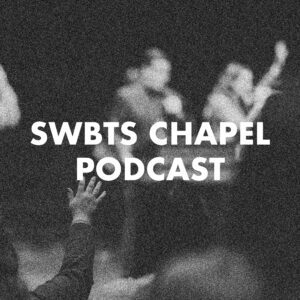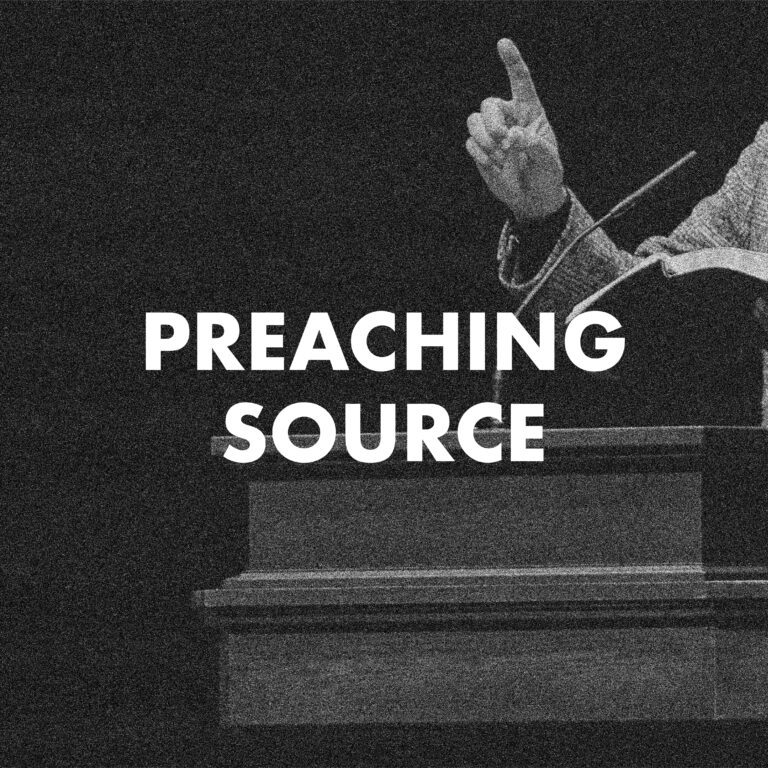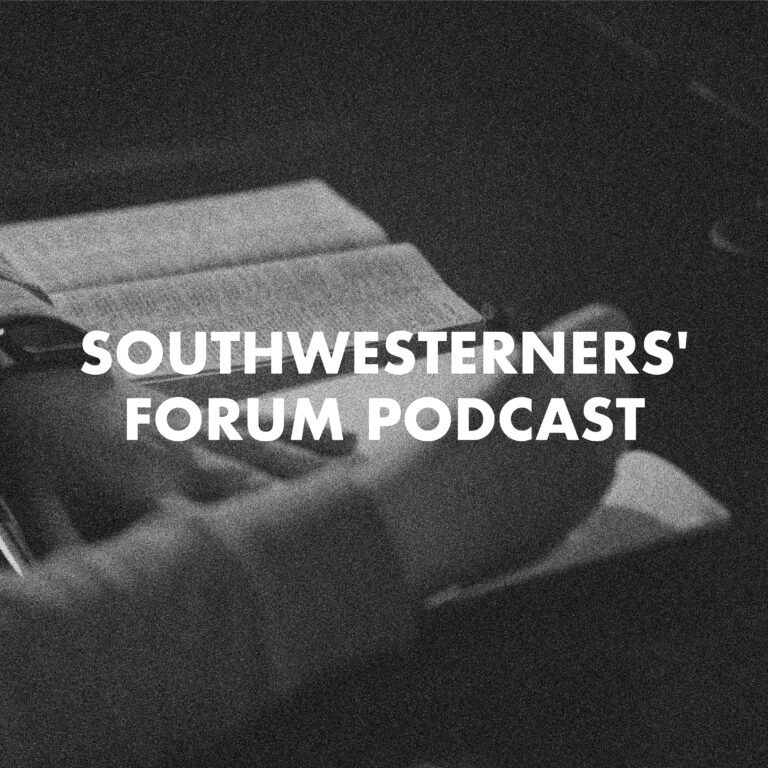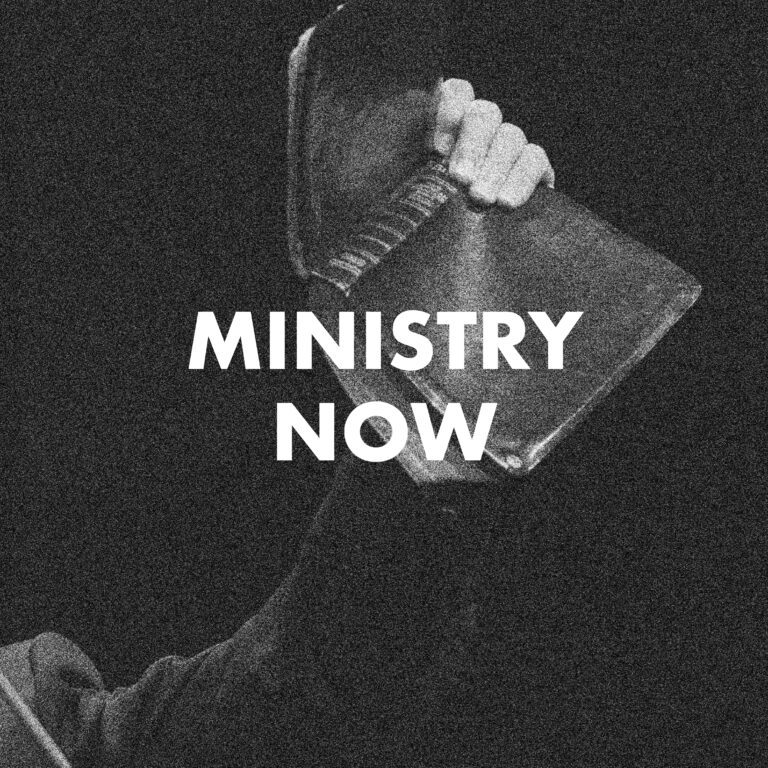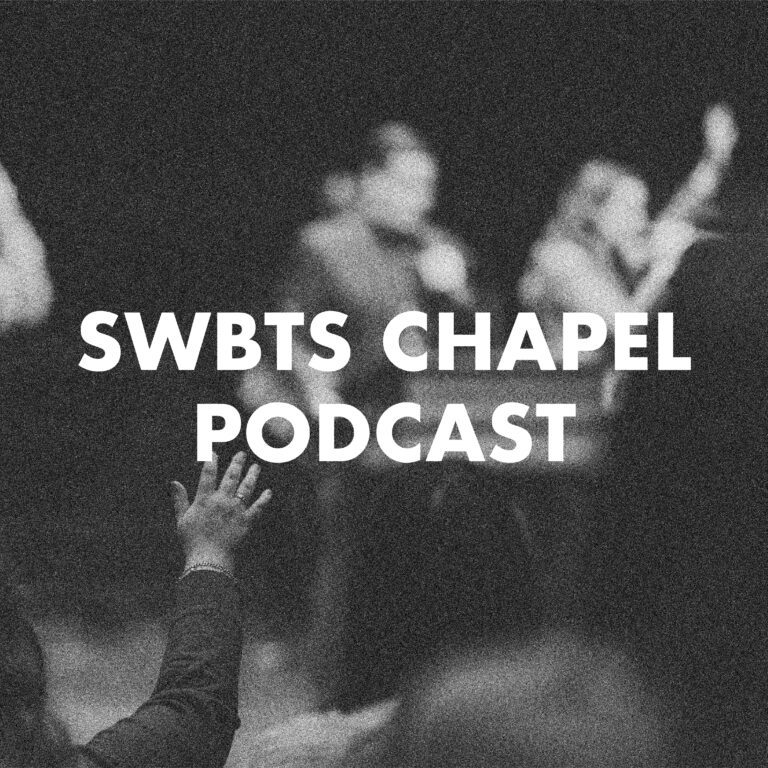Chris Osborne, Professor of Preaching and Pastoral Ministry and James T. Draper Chair of Pastoral Ministry at Southwestern Seminary, preached from Psalm 51 in SWBTSChapel on October 3, 2024.
The following is an uncorrected transcript generated by a transcription service. Before quoting in print, please check the corresponding audio for accuracy.
Please open your Bibles to Psalm 51 we know what the occasion is that causes David to write this psalm. There’s a day when he should have been in battle. Joab and the army are off with an important man named Uriah. They’re off in battle. David is stays behind in Jerusalem. If you go to Jerusalem, it’s the city of David slopes down. If his palace is here, he can see down on the roofs. And sure enough, he sees this gorgeous woman. And the only way to explain this is he lusts you. At which point you would think he would have gone and found one of his wives. He doesn’t, but he continues walking this path. So, he choirs of somebody says, who whose wife is? She said, Well, it’s Uriah, who’s one of David’s best guys. So doesn’t faze him. He brings her up, has relations with her, sends her back. No big deal. One Night Stand, he’s fine, till he gets a note where she says, I’m pregnant. Puts him in a quandary, because obviously she’s violated the covenant of her marriage. Her husbands at war, and the guy that’s going to have to condemn her is the guy that made her pregnant. So, he calls Joab and says, hey, send Uriah home. So, Uriah comes home, David fakes a little bit about how’s the war going. So, he hopes Uriah will go home. He gets up in the morning, Uriah is still in the palace. He says, What? Why haven’t you gone home? Uriah’s Holiness better than David’s. He says, I cannot enjoy the wife of my youth when my brothers and my lord Joab are in battle. I back. So, this night, David tries to get him drunk. Still doesn’t go home. He’s running out of time. Basti is about to show so he sends him back to Joab with the orders. Basically, killing Joab, who’s pretty bloodthirsty, is not a problem for him. So, he puts him in the front, has him killed. David waits Beth. She has a morning period. He brings her up now she’s, his wife. Everything’s covered. He’s fine. There’s a knock on the door and one of his favorite guys, Nathan, shows up, good friend Prophet, comes in and he says, David, we got a problem in the kingdom. So, what is it? Well, we got a guy, he’s got 1000 sheep, and somebody came to visit him, a buddy. But there’s a guy down the street from him. He’s got one little lamb. This lamb is so much of a pet, it sleeps in the bed with this guy. And this rich guy took their little bet lamb and killed it for this guy, David jumps up, who is he?
Nathan says it’s you. This had to have been a crushing, emotional moment for David. Sherry didn’t know what to do is to process. Nathan says two things to him. He says, Look, you’re not going to die, but your child will. Now, I don’t know when David wrote this psalm, but it’s after all of that. I don’t think he rushed right home and wrote it, but I’m sure he didn’t write it after the death of his child, because this is a brilliant processing of what he went through. So, he writes this whole thing after that episode. Walk with me. Listen to this. Be gracious to me, God, according to your faithful love, according to Your abundant compassion, blot out my rebellion. The first thing he starts out with, he says, God, my love wasn’t faithful, but I know it doesn’t keep your love from being faithful. I know you’re still good with me. I get that. I’m okay. So, everything he’s about to say in this psalm, he roots in his understanding of God’s love. I don’t know that he necessarily felt God’s love at this point, but he certainly believes that he puts his faith in the fact that no matter what his love toward God does, God’s love toward him is always there. So, everything he’s about to say is rooted in that. And so, he goes from this premise to a confession. Now listen to what he says carefully. Last part of verse one. Blot out my rebellion. Completely wash away my guilt. Cleanse me from my sin. I am conscious of my rebellion, and my sin is always before me. Notice what he says, innocence. Hey, look what I did with Bathsheba. Was just a bad moment. It was an accident. I was struggling. My wives and I were having problems. I just happened to see her as a one-night deal. It’s no big deal. No, twice, he says, I rebelled against you. We’ve got to come back to that understanding that our sin. I think the whole message of the Bible is we’re a planet in rebellion against its creator, who has sent His Son to die on a cross so he can forgive us for that rebellion and pull us out of that rebellion. David gets it. He realizes it’s not some accidental. In because I should have been somewhere else. I’ve rebelled. One of the things that most amazed me about pastoring were the number of people that came into my office sinning or even about to sin, and it was never rebellion. They always had some goofy way to excuse their rebellion without calling it rebellion. Had a lady catch me after service one Sunday, and she said, brother, Chris, my husband’s leaving us. Would you talk to him? So, I said, Sure. So, we met for lunch that week, and we chitchat a little, and finally I said, Look, your wife told me that you’re planning on leaving. What? What’s the deal here? Gets a little tear in his eye, and he says, well, I just don’t think I love myself enough. I think I’ve got to get away and figure out how to love myself better, and then I can come home and maybe really rebuild this marriage. I said, really? I said, Can I ask you a couple of questions? He said, yeah. I said, does your wife want you to leave? Said, No. I said, do your little girls want you to leave? No. I said, in is Jesus? Okay? Healing. No. I said, well, son, let me explain the issue here. It’s not that you don’t love yourself enough. You’re the only one you do love. So, you need to go home, love Jesus, love your wife and love your girl. It is amazing to me, the goofiness I heard, we have got to come back to an understanding we don’t fall because mommy and daddy didn’t like us, or our brothers didn’t like us, or we had a struggle in our life. When you and I sin, it is rebellion against the king. And then here’s what he does.
Look at this. He nuances it. Verse three, I’m conscious of my rebellion, my sin is always before me against you. You alone. I have sinned and done this evil in your sight. So, you are right when you pass sentence. You are blameless when you judge. Indeed, I was guilty when I was born. I was sinful when my mother conceived me, you know what you’d expect him to say, is, God, I sinned against Joanne, Uriah, Bathsheba, my family, my wives, my kids, the nation of Israel. I’ve sinned against all those people. But that’s not what he says. He says, Lord, you are the only one I’ve sinned against. There’s horizontal damage here. It’s horrific that Uriah has to die, that his child has to die, and Bathsheba is humiliated. The damage comes to the Kingdom. All those consequences are horrible. But that is not what makes rebellion. Listen carefully here. Sin is not defined by the horizontal damage you cause. It is defined by the vertical rebellion you choose. That’s it. Yeah, there’s horizontal damage, but that’s not what defines I’m weary, and this is something you’re going to struggle with when you get out there, if you call the minister, that’s why you’re here. We’ve had the big names fall we heard them. Evans, Morris, Lawson, we heard the names. But virtually every time I hear anybody say anything about them, this is what I hear. Oh, isn’t it terrible that they’ve lost their ministry? No, it’s not terrible. It’s bad, but it’s not terrible because they’ve lost their ministry. What’s terrible is they rebelled against their king. That’s what’s terrible when you get out in the ministry, do not base your morality or your decisions on whether or not it will damage your ministry. You base them on whether or not you bring pleasure to the heartbeat of the Father. The Bible says don’t quench him. Don’t grieve the Holy Spirit in your life. You want to get up living not to grieve the heartbeat of the Father, but to bring pleasure to the heartbeat of the father. If you do that, you don’t have to worry about consequences in your ministry, we’re always focused on the wrong thing. David is not He doesn’t say, blew up Uriah. I messed up Bathsheba. He says, God, my rebellion is against you. So, he lays out from us, he makes a confession, and then he has a request.
Look at this. Surely you desire integrity. In the inner self. In verse six, you teach me wisdom deep within, purify me with wisdom. I’ll be clean. Wash me. I’ll be whiter than snow. Let me hear joy and gladness. Let the bones you have crushed rejoice. Turn your face away from my sins, blood at my guilt. God create a clean heart in me. Renew his steadfast spirit. Don’t banish me from your presence or take your Holy Spirit from me, restore the joy of your salvation in me, and sustain me by giving me a willing spirit. Here’s his request. He says, God, please, it’s my bad I’ve rebelled against you. I’ve crushed my guilt overwhelms me, and I get it. I want you to clean me up, so I don’t feel that guilt anymore. And Father, please, whatever you do, do not take your Holy Spirit from me. Where does he get that? His predecessor went through that, and he saw the enormity of the damage in Saul’s life, and he did not want that on his own. Now, I know some of you really smart out there, you budding theologians, and you say to me, well, I don’t have to worry about that. Spirit doesn’t leave me. Well, you’re right, but I want you to listen. Ephesians, 4:30 here’s what he says. Don’t grieve God’s Holy Spirit. You will. You were sealed by him for the day of redemption. Absolutely, I’m sealed by the Holy Spirit. He’s in me. He stays there until the day the father brings me home. The Holy Spirit indwells me, does not leave me. I’m sealed true, but I can grieve Him by quenching him. And then he says a few verses over in 5:18 of Ephesians, he says, don’t get drunk with wine. Now listen carefully to what he says, don’t get drunk with wine, which leads to reckless living, but be filled by the Spirit, speaking to one another in psalms, hymns, spiritual songs, singing, making music with your heart, to the Lord, Giving thanks always for everything, to God, the Father, in the name of our Lord, Jesus, Christ, submitting to one another in the fear of Christ. Hear what he just said. He has a command. He says, Look, don’t quench him. Don’t grieve you. Here’s what I want you to do. You’re sealed with him. He’s in there permanent. I’ll be here’s what you need to do. You need to, every day, get up and be filled by the Holy Spirit of God. Here’s what he says. That’s the command. And then he gives three little participles. So, what he says is, if you’re not feeling the spirit, you can’t worship Well, you can’t give thanks well, and you can’t submit or be submitted to. Well, there are benefits from the Holy Spirit and unlike David, you can’t lose the Holy Spirit, but you can most assuredly, when you quench him and you grieve Him and you step into rebellion, you lose those benefits.
So, I can’t lose the Holy Spirit, but I can most assuredly lose those benefits. So, he makes his request, and then he makes a promise. Listen to this verse four, verse 13. Then if you’ll honor this request, now that’s the basis, right? Then I will teach the rebellious your ways and sinners will return to you, save me from the guilt of bloodshed. God, God of my salvation, and my tongue will sing of your righteousness, Lord, open my lips and my mouth will declare your praise. You do not want a sacrifice, or I would give it. You’re not pleased with a burnt offering. The sacrifice pleasing to God is a broken spirit. You will not despise a broken and humble heart God. So, he makes his promise to God. He says, Look, if you if you’ll forgive me, if you’ll restore me, if you’ll make sure the Holy Spirit does not leave me, my mouth will breathe out your praise. Now listen to what he says in the context. He says, my life will breathe out a tremendous praise of you. I will help sinners not go where I’ve gone, and I will breathe your praise out of a broken heart that is tied not to my sin, but to your grace. It is a tremendous statement. And then he finishes, and Your good pleasure, cause I under prosper, fill the walls of Jerusalem. Then you will delight in righteous sacrifices, whole burnt offerings. Then bulls will be offered on your altar. The last thing, he praises, God. I know I messed up my nation. Please fit. It’s a great song. Brilliant theology. He has a faith, premise, a confession, a request, a promise and a prayer. It’s a great song, though, I bet so you’re sitting there going, well, that’s great, but it really doesn’t apply to you, because I have no play.
Depends on being in a Bathsheba situation. I don’t think he wrote this psalm in case you find yourself in a Bathsheba situation. I think he wrote the song to keep you from a Bathsheba situation. Went to my first church. I will tell you the years before all of you were born, went to my first church, my last semester of seminary. So, I majored in Bible Mississippi College, graduated from MC on a Friday, got married on a Sunday, started seminary on Thursday, yeah, it was stupid, so I do that. But after I graduated seminary, now I go to my first church, 25 in worship, same nine people on Sunday night and Wednesday night, seven women, two men, always the same people, great little church. So, I go there, but I’ve just majored in Bible in college, and I’ve just graduated seminary, so I am the smartest man in the town. There’s no debate, I’m the man. So I go to Oakwood, and there’s a guy visiting my church who’s the school superintendent in the area. They call me over, and he said, Listen, I want you to come and have let’s just chit chat. So, we’re sitting on the front porch talking, and finally he looks at me and he goes, so let me ask you something. Do you believe that a man’s walking down a road and he comes to a fork in the road, and what he does with Jesus determines whether he takes the fork to heaven or the fork to hell? I said, Absolutely I believe that. And he said, Well, you’re wrong. I’m sorry. He said, You’re wrong. He said, we’re born on the road to hell, which is pretty much what David says here. We’re born on the road to hell, and we’re headed to hell until we meet Jesus Christ, and he turns us around and puts us on a different road to heaven. There are two thoughts that enter my mind simultaneously at that moment, two thoughts, a, he’s right. B, I’m not admitting this. I it. But he was right. We’re born on the road to hell, so we meet Christ, and he turns us around. We’re walking one direction toward hell. Now we may periodically step off that and do something good. I’m just lost. People do something good, but it doesn’t change the terminus of my walk. But what Christ does? He turns me around. Now I’m walking toward the father. I may step off and do some brain-dead things. It doesn’t change the terminus of my direction. So, I think the reason David wrote this Psalm was so that when you’re walking toward the Father, and let me just, let’s just be honest here, the enemy’s good. He’s going to tell you to change direction on the truth, he’s going to talk you into stepping off and doing some brain-dead things in your ministry.
But here’s what you do. The minute you step off, you employ something. You say, Father, I know you love me. It’s my rebellion. It’s against you. I don’t want to lose the benefits I have. I want to come back so I can help people not go where I just went. And I want to see the greatness of who you are. See if we do that every time we take a step, we never get so far out here that, as Paul says, we disqualify ourselves from ministry. If David had stopped, and I think this is why he wrote the psalm, if he had employed Psalm 51 the minute he thought about Joab and Uriah being off at battle and gone there, we wouldn’t have this story if he had stopped. When he looked down and saw her and thought, I need to be with my wives. We wouldn’t have the story if, when he heard it was Uriah’s wife and he realized violating he was violating his father, we wouldn’t have this story. We can stop it. And I’m telling you it’s still true. I had a guy call me the other day. I remember who it was, and he said, what is going on with the water in Dallas polar I said, What are you talking about? He said, man, your preachers are falling by the droves, and it really chapped. Be because it’s not true. The loud failures made the paper the quiet successes, don’t I have a good friend, Stan Orton, First Baptist Bremont, Texas. Stan has never been on the national stage. He’s never been on the state stage. He pastors Bremont, which is a little rural church. He’s been pastoring it for 45 years. He has three kids who love Jesus, one of them in the ministry, not because they saw perfection in the house, but they saw Psalm 51 repentance whenever there was sin. They saw a dad who honored Jesus and therefore loved his wife, his church, his community, his kids, and is still this day doing it well, you’re not going to hear his name, because this ministry is quiet. The loud guys make the cover of the forward start telegram. But I’m telling you, this number is not exaggerating. For every loud guy that has failed, there’s 100 guys doing it right.
You can do it right, and don’t fear being disqualified. That’s not what drives you. Father, I want to please you. Here’s what you pray in the morning when you get up, here’s your prayer. Father, today when I come to the end and I go to bed, let it be a day that brought you pleasure. That is the way we start.
